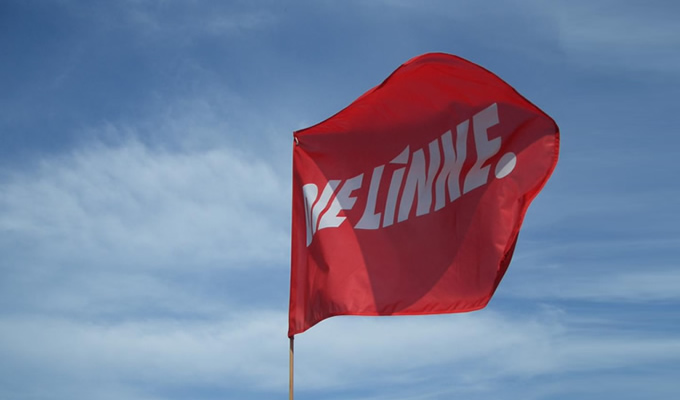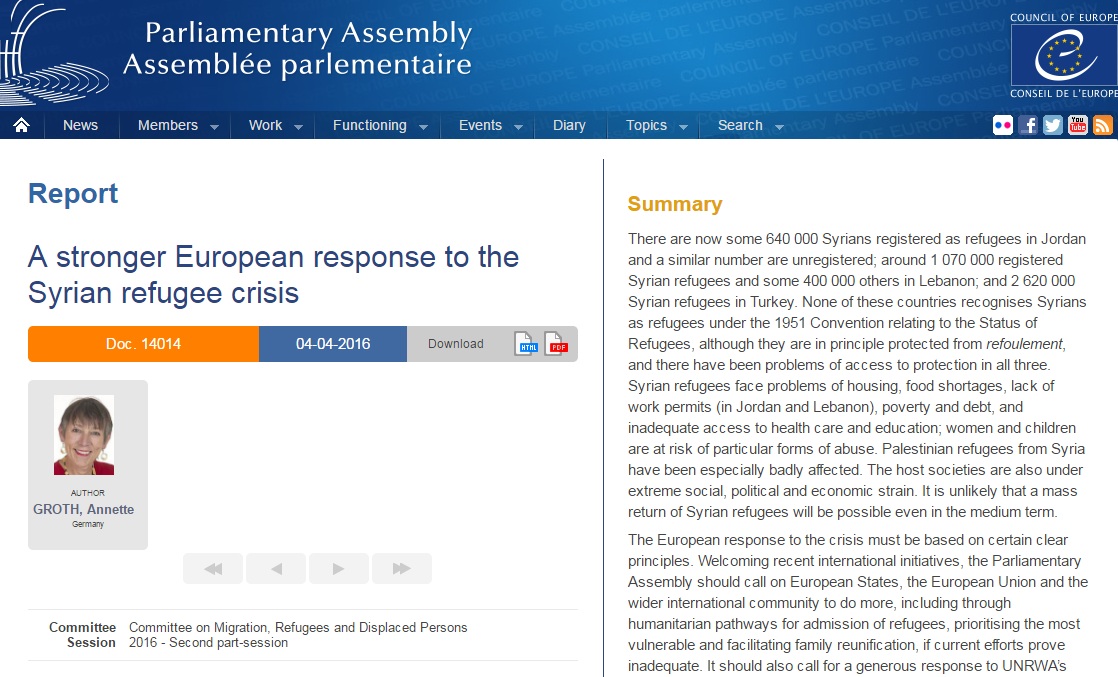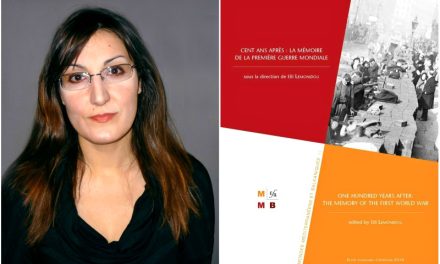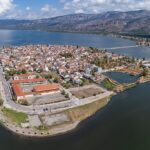Annette Groth is the spokeswoman on human rights for the Left Party (Die Linke) parliamentary group in the German Bundestag and a member of the Parliamentary Assembly of the Council of Europe’s Committee on Migration, Refugees and Displaced Persons.
Annette Groth looked into at the situation of the refugees in Greece over the course of two visits. In mid-May 2016 she was in Athens as the chairwoman of the German-Greek Parliamentary Friendship Group, and at the end of May she visited the country with a Council of Europe delegation.
Annette Groth spoke with Rethinking Greece* about the policy of austerity and the Troika’s treatment of Greece, Syriza in the face of power balances in the European Union, the recent EU-Turkey agreement and the most urgent problems faced by the refugees and the administrative and humanitarian challenges for both the Greek authorities and the European Union.
DIE LINKE has voted in the German parliament against the successive Greek bailouts in the past. What is the party’s position toward the July’s 2015 compromise and Syriza’s policy ever since?
It’s not for me to comment on tactical decisions by the Greek Left from a German perspective. I strongly believe, however, that the misguided and undemocratic Troika policy that forced one austerity programme after another on to Greece in recent years has continually worsened the financial and economic situation in the country. In Germany I am fighting against the dictatorship of the ECB, IMF and the EU Commission and try to actively contribute to bringing as swift an end as possible to the austerity policy of the Federal Government and the EU institutions. At the same time, however, I am aware that the Left currently does not have the power in EU member states to significantly change the policies of the imperialist centres. In a situation like this, left-wing parties must assess for themselves how they can best fight for the interests of workers and of the socially marginalised, and for social and environmentally-friendly development in their countries with the current balance of power in the European Union.
The economic and social situation in Greece makes it clear that the policy of austerity and cuts forced upon the country by the Troika does not work: the economy has been shrinking for years, public debt continues to rise; despite the destruction of increasingly large parts of its public infrastructure, the country continues to face a bleak financial situation. The latest dictates of the Troika, that force the Greek government to sell more public property, the opportunities to enact social and fair policies in Greece are further restricted.
What, do you think, is currently the state of the Greek-German relations in the Government level? What is DIE LINKE’s position concerning the issue of Greece’s debt reduction and how would you comment on the relevant EC-IMF different approaches?
Cooperation between the Greek and German governments is not based on a partnership on an equal footing. The Federal Government uses its economic and political power within the international institutions to push through the export-oriented capital interests of Germany and major international banks and financial institutions. This policy has radically exacerbated the social and economic situation in Greece. The difficult situation of the refugees in Greece is also a result of the EU’s irresponsible policy of austerity.
You have stated that Greek government’s demands concerning Greece’s forced loan to Nazi Germany and war reparations “are justified.” The German Government seem to be in denial about the existence of this debt. Can this attitude be changed?
I have been campaigning for many years for the Federal Government to find a mutually acceptable solution together with the Greek government to allow the legitimate claims by Greece to compensation for its payments to the German Reich during the fascist era to be honoured. Greek leaders are right to point out the injustice of the Nazi period, during which hundreds of thousands of Greek people were persecuted, countless murdered and the country systematically financially exploited. I consider it a scandal that Federal Governments have refused to even talk about the resulting injustice for Greece for over 60 years. I expect Germany and Greece to finally seek a joint solution, one that the Federal Government commits to reaching, in the next legislative term.
 Germany has been since the 1950’s a major receiving country for migrants. DIE LINKE has recently issued a 10 point paper which includes concrete suggestions for more humane policies toward refugees and migrants as well for the fight against racism. Can you tell us more?
Germany has been since the 1950’s a major receiving country for migrants. DIE LINKE has recently issued a 10 point paper which includes concrete suggestions for more humane policies toward refugees and migrants as well for the fight against racism. Can you tell us more?
By closing the Balkan route, the core EU member states have managed to shift the consequences of the movement of refugees back to the EU’s peripheral members. Tens of thousands of refugees are now once again waiting in Greece to continue their journey. Central European states make it repeatedly clear that they have ruled out reopening the borders, and that countries must adhere to the Dublin Agreement. In doing so, they move the responsibility for refugees on to countries such as Greece and Turkey and accept that the situation in these places will deteriorate dramatically.
Germany has been a country of immigration for many years as a result of its economic situation. Nevertheless, governments since the 1970s have not formed any policies for integration and political equality for those coming to Germany. People with migrant backgrounds and without a German passport remain second-class citizens even today, with fewer rights in Germany, without the right to vote, and who are frequently marginalised in public debates.
Since the arrival in Germany last year of refugees from Syria and the crisis zones of the Middle East, a policy of deterrence and isolation against these refugees has once again found its way into German politics. This has been the approach in Germany and the EU for decades.
Those fleeing have never been welcome in EU countries. It has been the policy of the EU for many years to keep refugees out of the EU to a large extent by systematically shutting its external borders. A key instrument in deterring refugees is the European Border Protection Agency FRONTEX, created in 2004. Hundreds of millions of euros are being poured into building border posts and fences, installing high-tech surveillance and forcing people into the sea. Since 2009, the annual budget for FRONTEX has been almost 90 million euros.
Through their racially motivated refugee policies, EU member states have actually restricted the right of asylum to such an extent that it has become impossible for the majority of people to flee persecution, war and hunger in their home country and seek asylum in Europe. The Left Party parliamentary group and the Left Party itself have fought against this inhuman policy for years and call for open borders for people in need. The party has outlined the possibilities for a refugee policy based on human rights in its 10-point paper. Today, I argue for this policy to at last become a reality in many international bodies. I expect governments that include left-wing parties to campaign for fundamental changes to refugee policy and to include the rights of refugees to a greater extent in the focus of their demands from national and European policy.
You regularly visit centres for refugees and migrants in many countries, while your report ‘A stronger European response to the Syrian refugee crisis’ was adopted by a large majority at the Council of Europe (21.4.2016). What is your assessment of the recent EU-Turkey agreement?
In order to close the EU’s external borders, EU states have reached an agreement with Turkey. For Turkey, three areas were important here: first, speeding up its accession negotiations with the EU; secondly, the fact that visa liberalisation measures for Turkish citizens are to be introduced as part of the agreement on the readmission of refugees from the EU, and thirdly the deal that around three billion euros are to be provided by the EU as an “initial contribution” towards providing for the approximately 2.2 million refugees.
In return, Turkey has declared it is willing to control its external borders more strictly and prevent refugees making their way in boats to Greece across the Aegean Sea. At the same time, refugees coming from Turkey who reach Greece will be returned to Turkey. To this end, the EU member states, including Germany, have classified Turkey as a “safe country of origin”.
Like many other prominent organisations, Amnesty International has pointed out that “Turkey is not a safe country for refugees and migrants”. Amnesty International went on to describe any readmission process resulting from the agreement as “flawed, illegal and immoral”. Doctors without Borders president Loris De Filippi has also described the agreement as cynical and has accused leaders of having “completely lost touch with reality“. UN High Commissioner for Refugees Filippo Grandi has said he is “deeply concerned about any arrangement that would involve the blanket return of anyone from one country to another without spelling out the refugee protection safeguards under international law”. The Council of Europe Commissioner for Human Rights, Nils Muiznieks, has even described the plans as “illegal”, as they run contrary to the European Convention on Human Rights.
The Council of Europe has also examined the topic intensively with a report and a resolution. On the one hand, the report titled “The situation of refugees and migrants under the EU-Turkey Agreement of 18 March 2016” states that “returns of asylum seekers, whether Syrian or not, to Turkey as a ‘safe third country’ are contrary to European Union and/or international law; as Turkey does not provide them with protection in accordance with the 1951 Convention relating to the Status of Refugees”. Specifically, the report calls for “children and vulnerable persons to be promptly excluded from detention and referred to appropriate alternative facilities”. Members of the Council of Europe viewed as important the recommendation to “refrain from involuntary returns of asylum seekers to Turkey under Article 38 of the Asylum Procedures Directive”.
The Council’s report and resolution clearly show that politicians in its member states view the situation for refugees most critically. Nevertheless, the report, which was adopted by a large majority, is yet to achieve anything. It would be more than desirable for members of the Council to also drum up support for these recommendations in their national parliaments.
The recommendation that “family reunion of refugees be allowed without any delay or complicated procedures, in order to prevent family members from being forced to take an irregular route to reunification” also shows that the parliamentarians are very aware of their responsibility. Yet as long as such recommendations fail to resonate in national legislatures, the recommendations of the Council remain a sheer waste of paper.
The resolution by the Council of Europe under the title “A stronger European response to the Syrian refugee crisis” also states its terms clearly. For example, the Parliamentary Assembly recommends that members “refrain from returning refugees to Turkey, as Turkey cannot be considered a safe third country for refugees” and calls upon the EU member states to “comply immediately with the decisions on relocation of refugees from Greece and Italy as adopted in September 2015”. The human rights commitments anchored in the Convention on Human Rights must also apply to refugees without exception. The news that deportations to Turkey have been stopped as a result of action taken by Pro Asyl before the relevant appeals body is thus very welcome indeed.
With its recommendation to “refrain from any onward refoulement of asylum seekers returned from Greece and ensure access to the asylum system and to an effective remedy with a suspensive effect against removal as required by the European Convention on Human Rights”, the Council of Europe has taken a clear stance. Now, the next step must be to persuade parliamentarians to speak out for refugees in their national parliaments, too.
DIE LINKE incorporates a strong feminist perspective in its policy suggestions and general political critique. What do you think is / should be the feminist element in the European Left political actions and discourse and especially in southern Europe?
The Left Party’s European platform calls for a European Union that is “feminist, free of exclusion measures, free of patriarchal power structures, free of exploitation and social inequalities. We want a European community where everyone can live freely, on their own terms and equipped with minimum social security standards – regardless of their gender, sexual identity, skin colour, age, social background, level of education, religion or ethnicity.” This fundamental policy orientation towards implementing a fairer society requires a complete overhaul of current EU policy. As long as the EU is designed to primarily assert capitalist profit maximising strategies for multinational corporations and the so-called free movement of capital constitutes the focus of European treaties, radical change in EU policy will have little chance of success.
The example of Greece has shown that implementing left-wing policy against a conscious boycott by EU bodies and the other EU governments is virtually impossible. That is why our main task in the EU’s largest economies is to create a social climate in these countries that forces their respective governments to support progressive policies in southern European countries instead of boycotting these.
European Left has been historically diverse with important schisms and often strong political distrust (e.g. Between Social Democrats and the Radical Left). Do you see any opportunities for broader left wing coalitions in Europe and especially in the European South?
The decision regarding what possible constellations of left-wing parties might work together in southern European countries cannot be made from Germany. Instead, we on the left in Germany, which has the strongest economy in the EU, need to focus on ensuring that the framework conditions of the European Union are changed in such a way that there is space for a left-wing social project.
Modern European culture is largely based on the democratic autonomy postulate, while what has happened in Greece the last 7 years revealed the power of the international financial elite and European political conservatism. How can we rethink Greece and Europe in this situation?
The Troika’s treatment of Greece is absolutely unacceptable. Only once the power of these institutions has been successfully broken will more room be created for left-wing policies in countries such as Greece, Portugal and Spain. The German Left is fighting to achieve this.
*Interview by Nikolas Nenedakis. The interview was taken in early June 2016. Many thanks to Nikolaos Vlahakis, Press and Communication Counsellor – Embassy of Greece in Germany.
PACE, Mediabox interview with Annette Groth on the adoption of her report “A stronger European response to the Syrian refugee crisis” at the Council of Europe’s Parliamentary Assembly April 2016 plenary session in Strasbourg:















